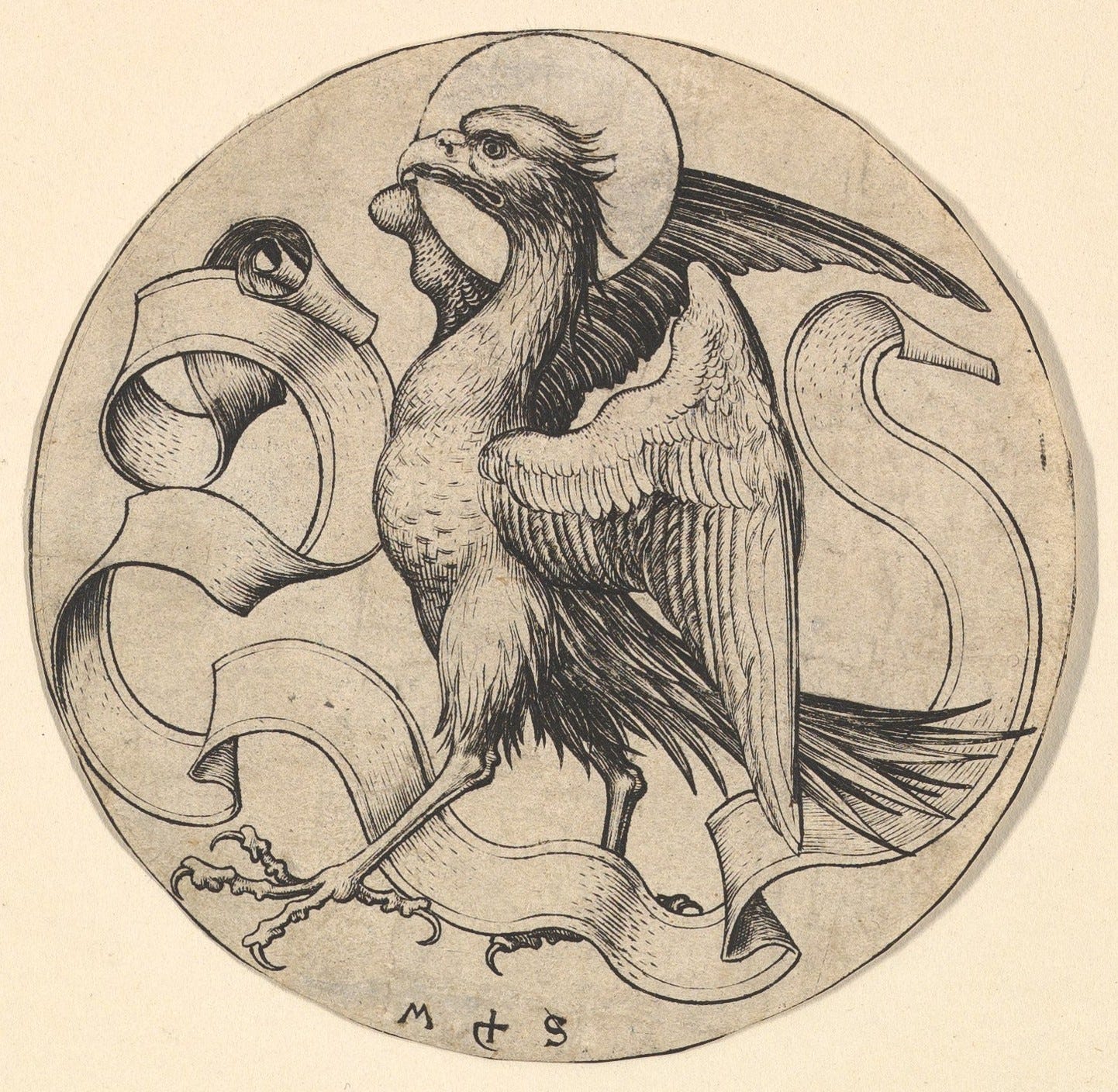If I forget you, O Lord...
Remembering God's many gifts with Psalm 103
who crowns you with steadfast love and mercy,
who satisfies you with good
so that your youth is renewed like the eagle’s.
Psalm 103:4b-5
This is part of an occasional series of meditations on Psalm 103.
Before we can travel to the heights with God on the wings of an eagle, we have to make the inward journey with him, to remember all he has done. These opening lines in Psalm 103 are deeply personal, echoing you you you over and over again, lest we forget.
And forgetting is an ever-present danger. Look at Deuteronomy, and the incessant reminder to never forget the Lord. (See Deut. 4:9, 23; 6:12; 8:11; 32:18) Again and again: Only take care, and keep your soul diligently, lest you forget the things that your eyes have seen, and lest they depart from your heart all the days of your life and take care, lest you forget the covenant of the Lord your God and take care lest you forget the Lord and on and on. Remember. It’s not a bit of advice: it’s a warning.
Memory drives us both backward and forward in search of the moments when God was there, the moments when we felt forsaken and abandoned. When we look closely, we come to learn the great mystery: we were never abandoned. He was there in all the moments, and the only difference is whether or not we recognized Him. He was in the sorrow as well as the joy, in the untimely death as well as in the new life, in the disease as well as the cure.
Our inability to see all these moments of God, and God in all these moments, is our failing, not His. The dark and the light shade together. One can overwhelm the other, and the hardest thing to remember–the almost impossible thing–is that God is there in the dark with us. He does not leave us alone. “The Lord has set the sun in the heavens,” Solomon says in 1 Kings 8:12, “but has said that he would dwell in thick darkness.”
In the last lines we considered, God found us in darkness, extended His hand, and lifted us out. In these lines, He raises us high into the light, and reminds of the good things He has given us. The previous verses gave us forgiveness, healed us of the sickness of original sin, and rescued us from the pit of death.
And now, great gifts are poured upon us. He crowns us with the pure graciousness of his love and mercy. He rends the veil between heaven and earth so all good things may flow to those with faith. He lifts us to the heights, restoring us even after death through the resurrection of the body.
This is a hymn of praise for the abundance of good things, and although the Psalm will continue extolling the glories of God, these few opening lines have a different quality. They are deeply, intensely personal. They are echo down from the Psalmists to the proclamation of the Kingdom by Jesus, where we wear of a crown woven of the Father’s love and mercy because the Son wore a twisted crown of thorns.
All these things were poured out for us when Christ appeared as the “high priest of the good things that have come” (Heb. 9:11) In scripture, the eagle flies high, towards heaven (Prov. 23:5, etc), a sign of power and beauty, but also perhaps of the renewal of youth. In a bit of ancient lore much like the legend of the phoenix, once every ten years, for a hundred years, the eagle climbs high toward the sun and burns up. It falls into the sea, and emerges with new feathers—stronger, and young again. This image was embraced by medieval commentators, who saw in it the life of man, with his sins burned away in the light of God, rising to new life from the waters of baptism, or in the resurrection of the body.
Man is always in danger of forgetting—particularly of forgetting God. The Psalms are there to remind us.
Prayer
Lord, you have blessed us in so many ways, first by lifting us from darkness, and then by raising us to the light. May we never lose sight of these gifts even when the darkness calls to us.
Meditation
Can we see God’s gifts clearly in the memories of our lives, even in the parts? Especially in the bad parts? It may be the hardest thing to do, but when we find Him there, acting when we couldn’t even tell, that the discovery is most rewarding.


